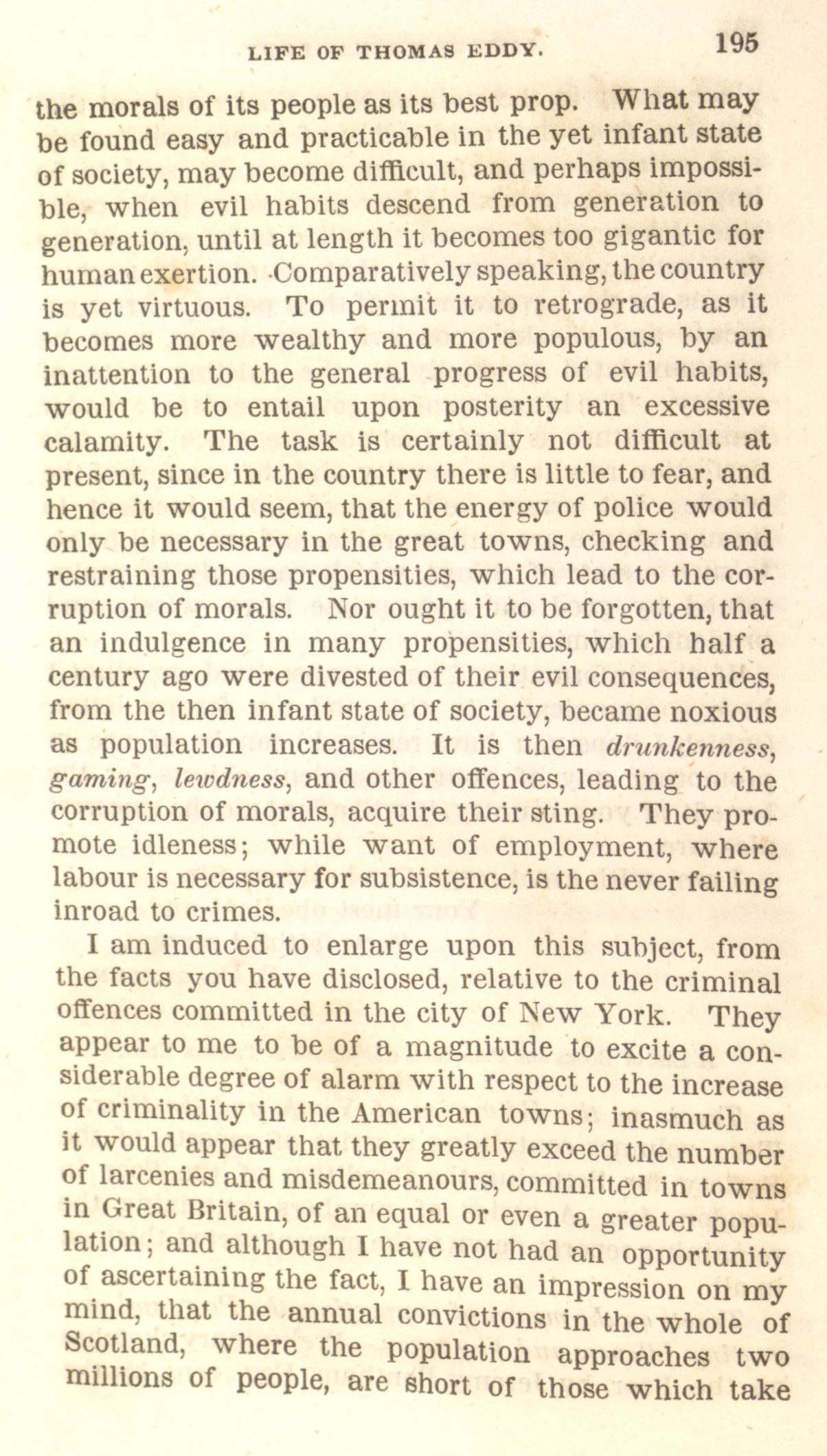the
morals of its people as its best prop. What may
be found easy and
practicable in the yet infant state
of society, may become
difficult, and perhaps impossi-
ble, when evil habits descend from
generation to
generation, until at length it becomes too gigantic
for
human exertion. Comparatively speaking, the country
is yet
virtuous. To permit it to retrograde, as it
becomes more wealthy and
more populous, by an
inattention to the general progress of evil
habits,
would be to entail upon posterity an excessive
calamity.
The task is certainly not difficult at
present, since in the country
there is little to fear, and
hence it would seem, that the energy
of police would
only be necessary in the great towns, checking
and
restraining those propensities, which lead to the
cor-
ruption of morals. Nor ought it to be forgotten, that
an
indulgence in many propensities, which half a
century ago were
divested of their evil consequences,
from the then infant state of
society, became noxious
as population increases. It is then drunkenness,
gaming, lewdness, and other
offences, leading to the
corruption of morals, acquire their sting.
They pro-
mote idleness; while want of employment, where
labour
is necessary for subsistence, is the never failing
inroad to
crimes.
I am induced to enlarge upon this subject, from
the facts you have
disclosed, relative to the criminal
offences committed in the city
of New York
appear to me to be of a magnitude to excite a con-
siderable degree of alarm with respect to the increase
of criminality in the American towns; inasmuch as
it would appear that they greatly exceed the number
of larcenies and misdemeanours, committed in towns
in Great Britain, of an equal or even a greater popu-
lation; and although I have not had an opportunity
of ascertaining the fact, I have an impression on my
mind, that the annual convictions in the whole of
Scotland, where the population approaches two
millions of people, are short of those which take

